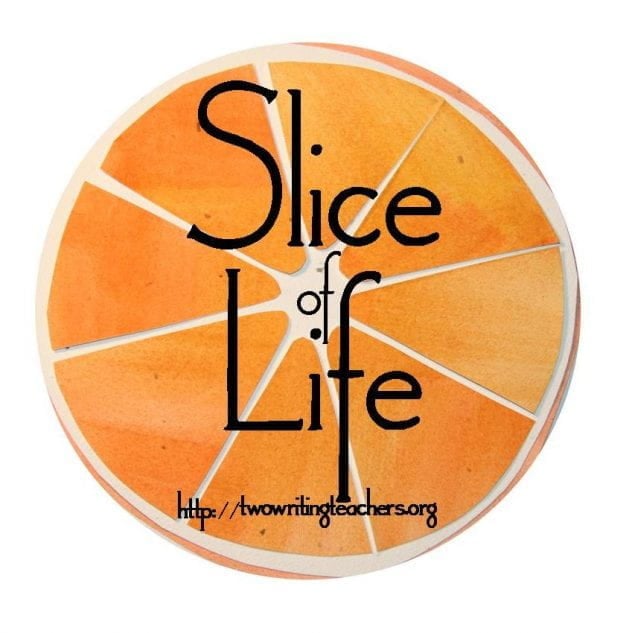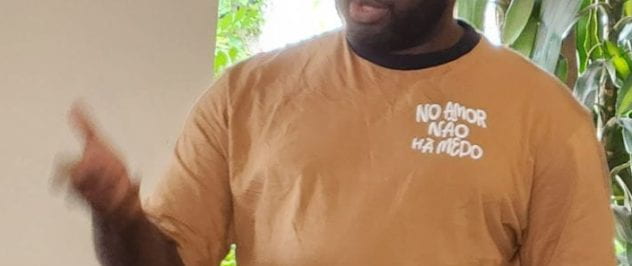
“Minha sobrinha é Denise.”
I recognized Muriel’s Portuguese. We had just been talking about my name. The difference in the way it sounds in Brazil and America. Dee-nee-zee in Brazil. Slow and lyrical. (I think I like it better.)
Then I heard Muriel say sobrinha…and I knew in Spanish sobrina means niece, so I recognized what she was saying. It was such a funny surprise to be discussing in another language Denise and niece. I can’t count the many times in my life I’ve heard the conversation-starting, unrealistic joke about the one who had to name his sister’s twins because she was unconscious after childbirth. When she came around, he told her the names he picked. Denise for the girl. “Okay, that’s not so bad,” she said. “And what did you name my son?” Denephew. Haha.
But in Portuguese there is no rhyming of sobrinha and Dee-nee-zee. This was a true niece named Denise. I should have just appreciated the bit of communication that we were able to have without knowing each other’s languages. Instead, I attempted to tell her that sobrinha in English is niece and sounds like Denise. (But it doesn’t sound like Dee-nee-zee.) At that point, someone came by and was able to translate my little word play. Muriel laughed and we hugged and said tchau tchau, both off to our next activities.
I was reminded again from this exchange how important and complicated and beautiful language is in all its varieties. And how often the heart comes through even without words.
sobrinha or niece
some things lost in translation
but sweet love comes through
Spanish was very helpful while reading and trying to communicate in Portuguese. However, the pronunciations were so different, and there is more new vocabulary in Portuguese than familiar Spanish cognates, so I quickly learned that Spanish speakers and Portuguese speakers do not naturally understand each other. Like this word no in Portuguese. It means in (and a lot of other important prepositions). It’s pronounced nu. (The English no is não and pronounced more like English and Spanish.)


Your piece required a close re-read. But worth it! Like the difficulties described, it is convoluted. and rich. You add the human context that makes us struggle through the communicative challenges. and the images at the end add real depth. I enjoyed this moment you reflected on and shared with us.
It is exciting to be able to communicate in another language! You was adventurous of you to attempt a joke in another language. As an aside, “no” in Scottish Gaelic means “and.”
Fran is absolutely right. This merits at least two readings. I love the haiku about love at the foundation of understanding even if the mechanics are challenging. I also chuckled at the joke. It was interesting to think about all the power in that small “no” for the Portuguese speaker. Brazil was such a rich experience for you! It keeps giving.
Denise,
I admire the way you jump into languages and practice learning and speaking them. I get so nervous about making mistakes. This is a wonderful story and comparison/contrast, an excellent mentor text, too. You’ve reminded me of a recent Swahili lesson I experienced.
This is a gem – “often the heart comes through even without words.” I love this slice, Denise! What a lame joke, that Denise/Denephew, lol. So much more fun to be in rich conversation with another, no matter the language. I adore your haiku!
Denise, as always you offer us a brightly-woven tapestry of love and care, with unique flair. I learn much from you. Sweet love and laughter, the ties that bind, the beauty of cultures and words…in translation, a celebration of life!
I love that you’ve practiced Spanish enough to recognize the subtleties and the huge differences. Are you still using Duolingo? I stopped the paid subscription and paid for a lifetime of Babbel instead… They both have their benefits. Keep it up, Denise! Still so glad you got to go to Brazil!!
Fascinating how language changes from land to land and even region to region. I love how your word play finally got an audience who “got it.” So many nuances. I can’t speak any other language. I feel I should have done that at a much younger age.